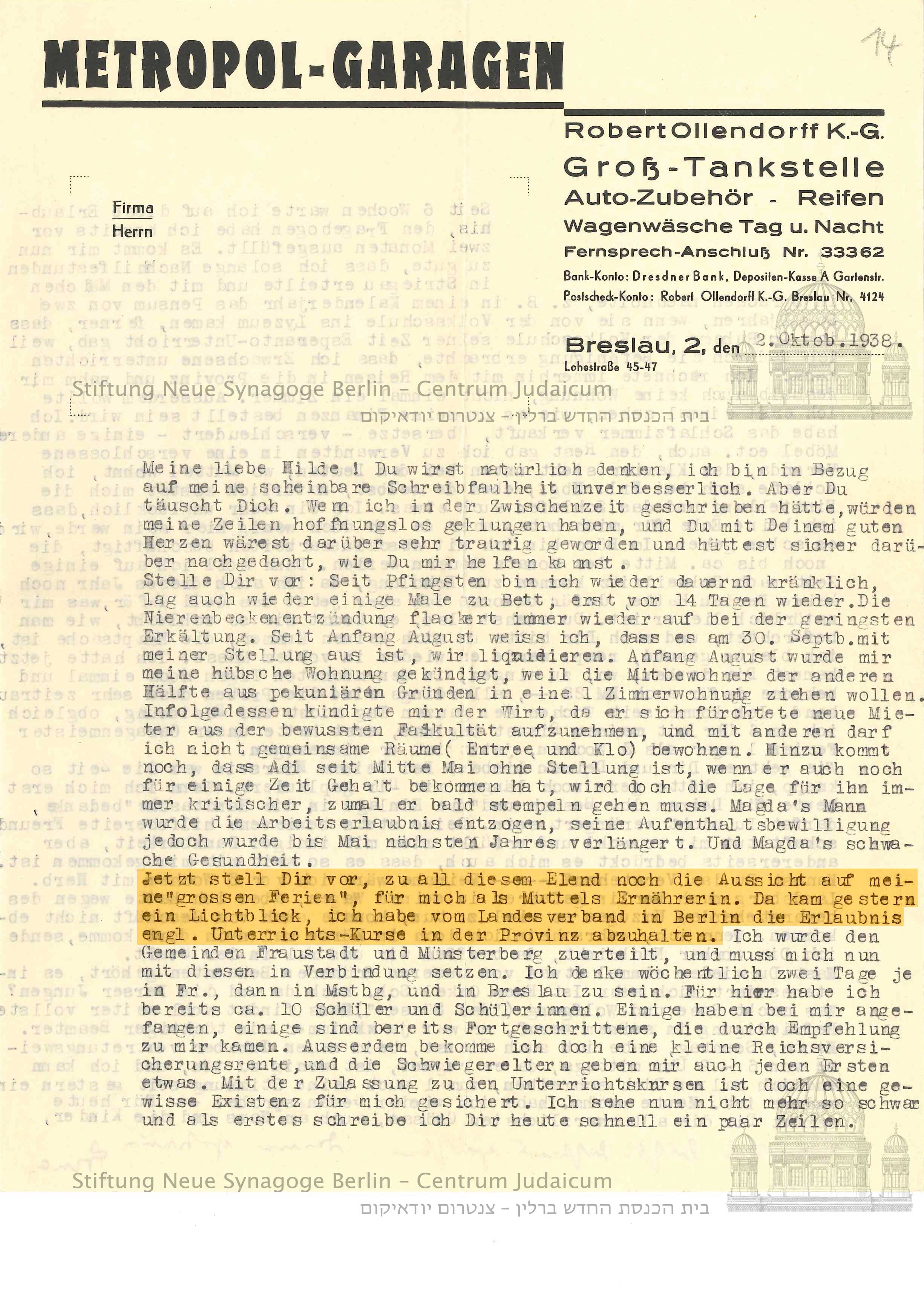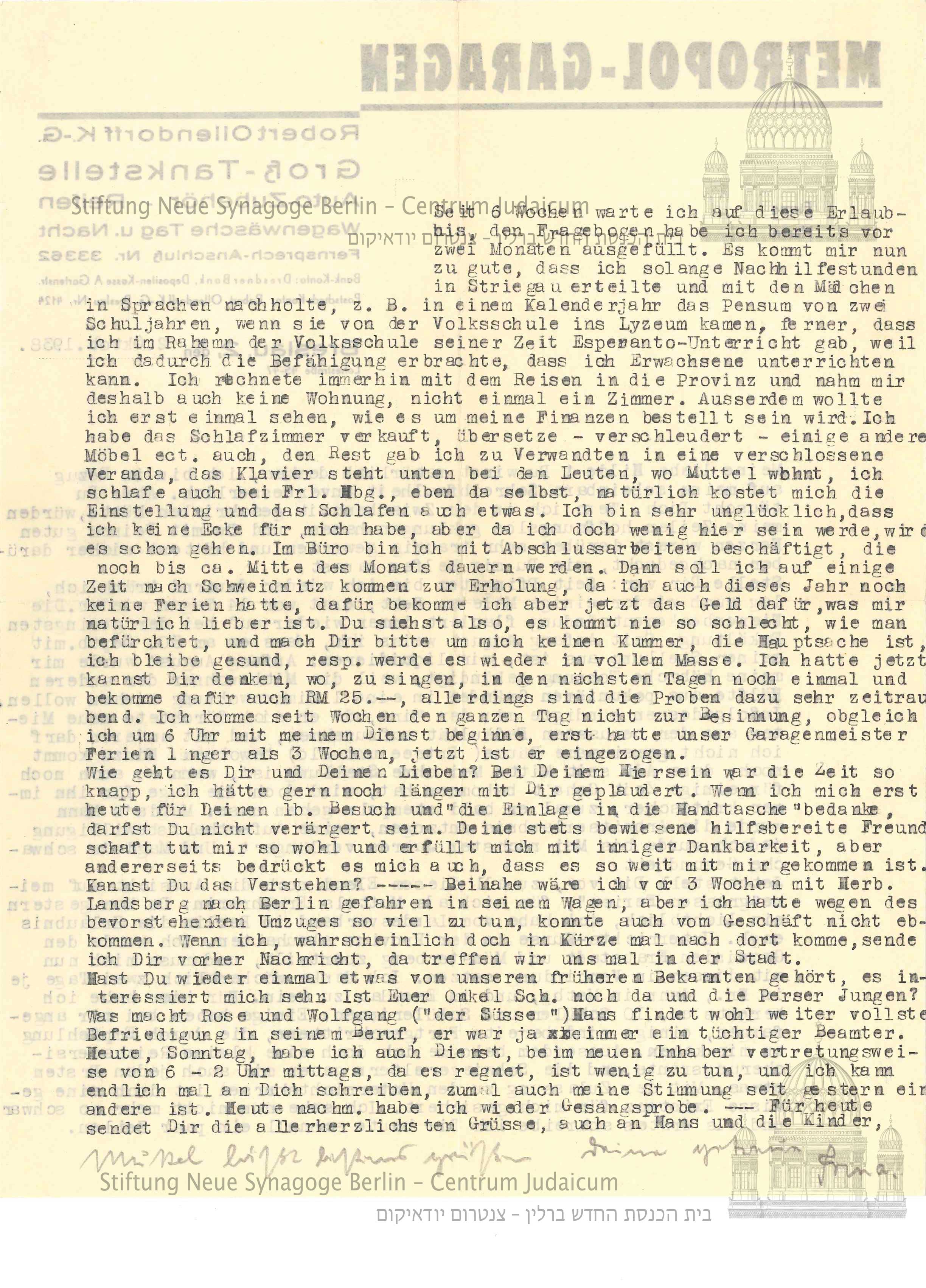Upheaval hits home and work
Search for a home and a job



External links are disabled on the kiosk. Please visit archive links from desktop or mobile devices.






















BACK TO TIMELINE
Sign up for weekly updates:
Success
Thank you for signing up.
Error
You're already a list member.
Error
An error occurred, please try again later.










































Sign up for weekly updates:
Success
Thank you for signing up.
Error
You're already a list member.
Error
An error occurred, please try again later.
The Leo Baeck Institute – New York | Berlin presents the year 1938 through the eyes of Jews, whose personal documents detail their experiences and the hardships they suffered as well as the growing tensions in Europe and diminishing hope for Jews in Germany and Austria.

Curated by Leo Baeck Institute – New York | Berlin
© 2018 Leo Baeck Institute
Website and exhibition design by C&G Partners



“Now imagine, on top of all this misery the prospect of my going on a ‘long vacation’ while I need to be mom's provider. And then, yesterday, a ray of hope appeared, I got permission from the Landesverband in Berlin to conduct English classes in the provinces.”
BRESLAU/BERLIN
In August 1938, Irma Umlauf’s life had begun to unravel: she had been notified that the Jewish-owned company in Breslau for which she worked was going to be liquidated, leaving her jobless. And her landlord had terminated her lease. While there was no law in October 1938 stipulating that non-Jews could not have Jewish tenants, some landlords were eager to get rid of them. In Irma Umlauf’s case, the problem was that her Jewish co-tenants could no longer afford the place and had moved out. The non-Jewish landlord, according to Irma, was afraid to accept other Jewish tenants, and since Jews and non-Jews weren’t allowed to share living space, she had no choice but to leave. Among the other topics broached by Irma in this letter to her friend Hilde Liepelt in Berlin, is her job situation. Luckily, the Landesverband in Berlin gave her permission to do language lessons in the Jewish communities of Münsterberg and Fraustadt, both near Breslau, providing her both with means to live as well as allowing her to continue caring for her mother. A little extra income was generated by singing engagements.
SOURCE
Institution:
New Synagogue Berlin – Centrum Judaicum 
Original:
Letter from Irma Umlauf in Breslau, to her friend Hilde Liepelt in Berlin ; 7.379, Bl. 14



Curated by Leo Baeck Institute – New York | Berlin © 2018 Leo Baeck Institute
Website and exhibition design by C&G Partners